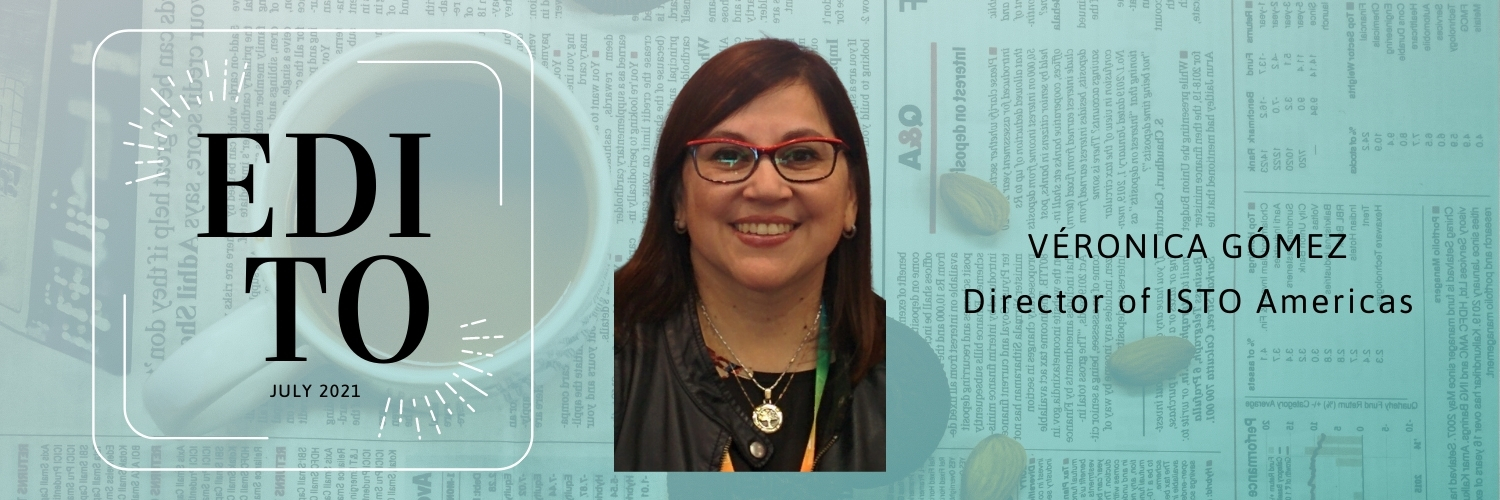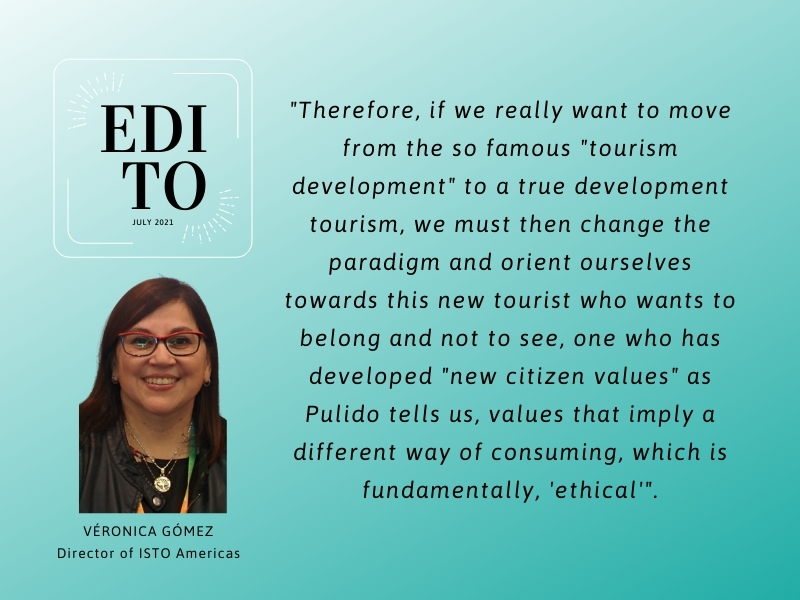Thoughts following the second edition of the International Week of Fair and Sustainable Tourism for All.
The International Week of Fair and Sustainable Tourism for All, organised by ISTO in collaboration with the Peruvian Ministry of Foreign Trade and Tourism (MINCETUR), which took place at the end of June, forced us to reflect together on the kind of tourism we want and the kind of tourism we propose as an organisation and with our members for the future. If the Covid-19 global health crisis has imposed a forced pause in our daily activities, it has also forced us, whether we recognise it or not, to question ourselves about the way we did things: our way of "selling" tourism experiences, our way of receiving tourists and the mark we left on these residents and on the territories that received them on a day-to-day basis.
Some, more optimistic than others, thought, at the beginning of this pandemic, that this forced reflection would set in motion the trend we had been observing of being more respectful of the environment, while at the same time strengthening a healthy economy that takes into account the needs of the workers in the sector and the communities that receive these tourists. Then, many of us, seeing many others talking about "reviving" tourism without rethinking it, became disenchanted with this perhaps "romantic" vision of the new tourism or post-pandemic tourism.
But what is clear is that the trends that have already been observed are here to stay and are no longer a passing fad or the result of a few initiatives scattered here and there around the world. More and more of us are aware that tourism must be sustainable or there will be no tourism. To this end, those who are convinced of the importance of sustainability will have to stand out and distinguish themselves in their practices, leading the way for those less convinced or even for those disbelievers who have not yet started this journey.
Much has been said during this International Week, and much material to rescue without a doubt, but in this line of thought, I would like to highlight some aspects that Juan Ignacio Pulido, Professor of Applied Economics at the University of Jaén, shared with us during his conference. He told us that we must understand that what we finally "sell" in tourism is the "right to the future satisfaction of an illusion", therefore, it is necessary that we generate those transforming experiences, which entail personal development and involve the greatest social interaction, aspects totally aligned with our Montreal Declaration Towards a humanist, social vision of tourism (1996). Therefore, if we really want to move from the so famous "tourism development" to a true development tourism, we must then change the paradigm and orient ourselves towards this new tourist who wants to belong and not to see, one who has developed "new citizen values" as Pulido tells us, values that imply a different way of consuming, which is fundamentally, "ethical".
But it is not only the tourists who have changed, it must have been us, the actors in the tourism sector, who have also changed, and in this sense, we must have learned that the "success" of our destinations, as Pulido rightly points out, should no longer be measured by the number of tourists arriving there, but by the number "sufficient to generate the resources required for a better quality of life for its inhabitants".
When we have learned to measure it in this way, we will be successful with what we really need to be: tourism as a tool for improving the quality of life of residents, and we will only achieve this through coordinated, articulated, cooperative and networked work, where we stop being merely competitors and move towards a strategy of "tourism coopetition" where, by joining forces in a common struggle, we highlight our most intrinsic values, those that define the DNA of social tourism in its 5 major components: inclusion, solidarity, quality of life, the environment and fair trade.
If there is one thing that this international week of reflection and exchange has left us with, it is the conviction that something is finally changing, that more and more of us are raising our voices for the implementation or continuation of sustainable practices with the communities and the territory, but, above all, that more and more of us are putting people at the centre of our activity.
Let us pursue our work in favour of tourism that serves people, communities, and territories! ISTO's members have been doing this for a long time, don't hesitate to come and ask, you will find many inspiring actions in our international network.

